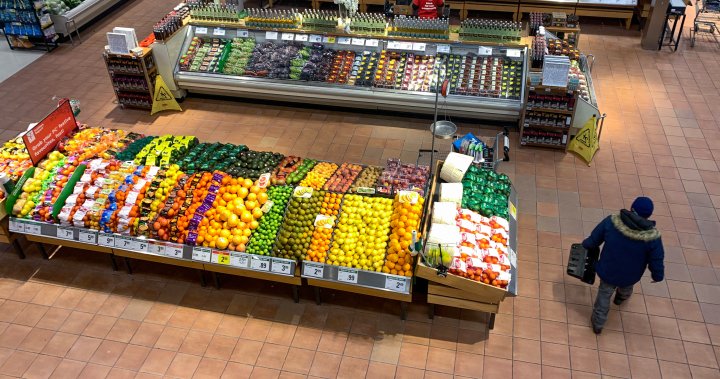Statistics Canada says the annual rate of inflation accelerated to 3.4 per cent in December, thanks to gas prices and still sticky price hikes at the grocery store.
That’s up from the November inflation rate of 3.1 per cent.
Economists had widely expected a temporary inflation spike, owed largely to a smaller drop in gasoline prices in December compared with a year ago. Gas prices have declined for the fourth consecutive month, StatCan says.
Prices at the grocery store rose 4.7 last month, StatCan says, the same pace seen in November.
Shelter inflation such as climbing rent and mortgage costs continued to drive the cost of living higher in December.
Canadians paid 31.1 per cent more for air transportation in December than in November as the holiday season pushed up demand for airfare, StatCan says. Cheaper prices on travel tours month-to-month helped moderate this pressure.
Higher costs for fuel oil and passenger vehicles were also contributing to inflation last month, the agency says.
Get the latest Money 123 news.
Sent to your email, every week.
With December marking the last month of the year, Statistics Canada says the annual average inflation rate for 2023 was 3.9 per cent, down from a 40-year high of 6.8 per cent in 2022.
Tuesday’s report comes about a week ahead of the Bank of Canada’s next interest rate decision set for Jan. 24. The central bank has held its policy rate steady at 5.0 per cent in the past three decisions, and has warned that rates might need to rise higher to fully bring inflation back to its two per cent target even as many forecasters start to pencil in rate cuts later this year.
While the uptick in headline inflation might have been expected, there were signs of acceleration in the central bank’s closely watched metrics of core inflation, too.
BMO chief economist Doug Porter said in a note to clients Tuesday that core inflation holding around mid-three per cent range will be “unsettling news” for the Bank of Canada, proving that the so-called “last mile” of the inflation fight will be the hardest.
With wage growth still elevated and signs that the housing market might be waking up from its hibernation, Porter argued that the central bank will have to hold a “cautious stance” in next week’s decision. He reiterated BMO’s call for interest rate cuts to begin in June.
TD Bank economist Leslie Preston also said the December inflation report will pour water on calls for an easing in the Bank of Canada’s policy rate.
“If you are looking for data to signal a rate cut is imminent, this isn’t it,” she wrote in a note.
TD Bank nonetheless has a more aggressive timeline for easing to begin, expecting the first cut in April. Preston said she expects inflation and the wider economy will have slowed enough to give the Bank of Canada confidence that inflation is heading back to two per cent to start easing monetary policy by then.
More to come.
— with files from The Canadian Press
© 2024 Global News, a division of Corus Entertainment Inc.




